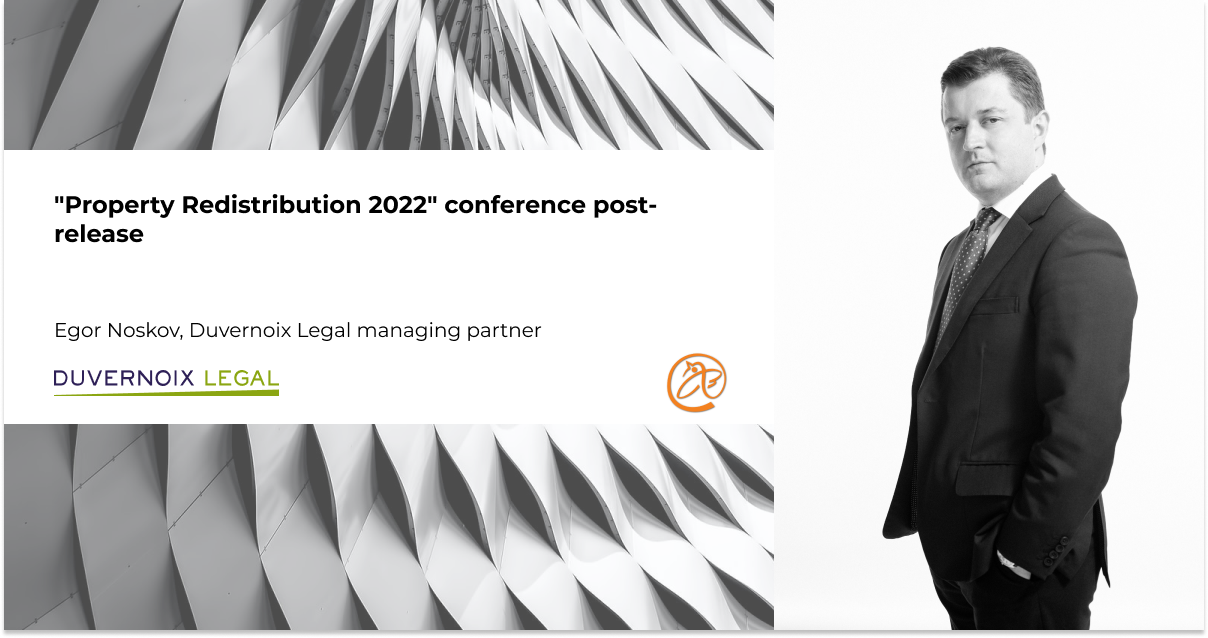"Property Redistribution 2022" conference post-release

At the legal discussion "Redistribution of Property - 2022" Egor Noskov, Managing Partner of Duvernoix Legal, together with other participants discussed the actions of states aimed at redistributing private property.
"We have all found ourselves in a completely new reality which will enrich us with a completely new experience. Metaphorically, you can imagine life as a virtual game, where at one level you need to take care of trees and punish those who cut down these trees, and at the next level, on the contrary, you need to cut down trees and punish those who prevent you from doing it," says Egor Noskov.
According to the expert, more and more new ideas are being born every day, both from Russia and from Western countries. Neither foreign entrepreneurs in Russia nor Russian businessmen in so-called unfriendly countries can be absolutely sure that their property will remain with them. "Even our average businessmen had real estate in European countries. And this is not only the Cote d'Azur, but also relatively inexpensive countries: Bulgaria, Cyprus, Spain, Portugal. All of them are now at risk of parting with their real estate, because there are also unbelievable initiatives abroad, no worse than of our authorities. In particular, to make a hair-cut of Russian accounts abroad on the model of the Cypriot one. In this Orthodox country, I remind you, the state simply withdrew 50% of the funds held in the Bank of Cyprus as of March 15, 2013 in order to close its own financial hole. And those who had the imprudence to keep money in the Laiki Bank just got nothing. Such a hair-cut "Bloomberg" predicts Russians who have accounts abroad, and they already are unable to get to their real estate anyway. Therefore, the time is very interesting," the expert sums up.
In this regard, Egor Noskov predicts in the near future the popularity of such a legal service as filing a denunciation: firstly, to Russian government agencies about unreliable Russians who have property in unfriendly countries; secondly (services of former employees of international law firms with knowledge of the language and laws of a particular Western country will be needed here), to state agencies of European countries about the local real estate of particularly patriotic Russians. "If such a citizen openly expresses support for our government, and at the same time owns property and accounts in unfriendly countries, then, from the point of view of ordinary citizens of Russia (maybe no less patriotic), it may seem unfair," the lawyer says ironically.
Broadcast on YouTube:
